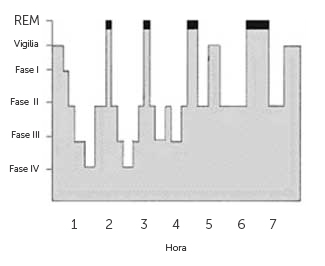Sleep problems are common in the elderly, and are probably more related to a lower “ability’”to sleep than a decline in the “need” to sleep.
The factors that contribute to the deterioration of sleep in senility are:
- Physiological changes of aging.
- Pathology of sleep itself most frequent in these ages: Insomnia, sleep apnea-hypopnea syndrome, periodic leg movements.
- Other situations often associated with age: Existence of medical diseases, psychosocial conditions, sleep habits, concomitant treatments.
- Insomnia: This is the most frequent complaint. Its frequency increases with age, especially the chronic form, and is often secondary. Risk factors for the emergence of insomnia in older age are depression, respiratory symptoms, disability, and subjective feeling of ill health.
- Circadian rhythm changes: Advanced sleep phase is a disorder of the sleep-wake circadian rhythm that is common in the elderly. It is observed in subjects who are sleepy in the afternoon to evening so they go to sleep early and wake up, with difficulty returning to sleep.
- Sleep apnea-hypopnea syndrome: Its prevalence increases with age, although the severity of the disorder may decrease in the elderly. This disorder is more common in women after menopause. In the elderly, the appearance of a sleep apnea-hypopnea syndrome would be a secondary condition to processes dependent on aging (increase in the collapse of the airway, decrease of the pharyngeal muscles response to negative pressure, narrowing of the diameter of the airway (by fatty deposits), decrease in the capacity for the diffusion of oxygen, weight gain, and the existence of other pathologies (e.g., hypothyroidism). In addition there is not an appropriate response to oxygen and CO2 concentrations in the blood.
